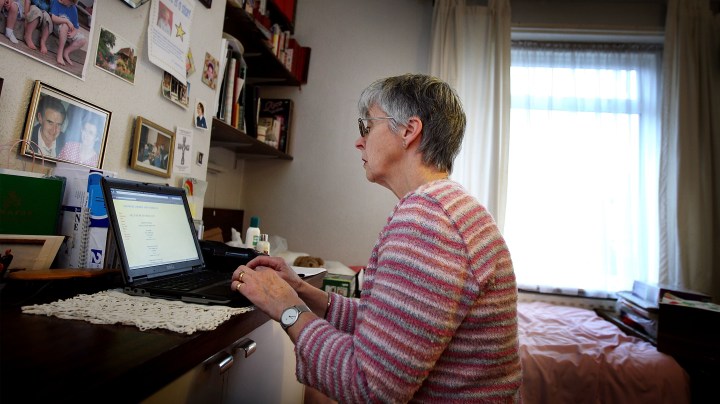
Employers ramping up mental health services in COVID-19 pandemic
Employers ramping up mental health services in COVID-19 pandemic

Some employers are stepping up to provide help for workers struggling with the stress of a global pandemic.
Starbucks announced earlier this week that every worker can get 20 free mental health counseling sessions, and many other employers are offering resources beyond their traditional health care plans.
Video on demand
Heading for the therapist’s physical couch is not an option in our new reality of social distancing, so Andrew Facemire was glad when his employer, Northern Arizona University, started offering on-demand video counseling.
“For someone like me that has an anxiety disorder, knowing that I can get a hold of someone really quickly if I have an anxiety attack, it’s really important because at this time it’s just really easy to get overwhelmed.”
Meditation app
At data analytics firm ThoughtSpot, employees like Candice Locke recently got a subscription to the meditation app Calm. She’s been working alone in her house in Mountain View, California for the last two weeks and is now under a shelter-in-place order. She’s been using the app several times a day.
“As soon as I start to focus too much on the news, I then bring it up and that ‘Take a breath’ is a good way to reset. Just helping me stay calm, focused, grounded,” she said.
Does it help?
Tom Insel, the former head of the National Institute of Mental Health, said these kinds of free, direct employer programs could be more effective at getting people immediate help than traditional health care providers in times of crisis.
“They’re more convenient in that they can do this through the company’s website and now there are a whole series of different companies and different tools that are available,” he said, “everything from peer support and coaching all the way to one on one therapy.”
Still, he said, employee assistance programs are often limited at smaller companies and those that employ hourly workers. And of the estimated half of private sector workers with access to these resources, less than 7% typically use them.
But this crisis could be a turning point, said Laurie Ruettimann, a human resource consultant in Raleigh, North Carolina.
“Coronavirus is putting pressure on workers in ways that will really test the well-being not only of the workforce, but the entire society. And I think that has real consequences favorably for HR policies,” she said.
There’s a lot happening in the world. Through it all, Marketplace is here for you.
You rely on Marketplace to break down the world’s events and tell you how it affects you in a fact-based, approachable way. We rely on your financial support to keep making that possible.
Your donation today powers the independent journalism that you rely on. For just $5/month, you can help sustain Marketplace so we can keep reporting on the things that matter to you.












